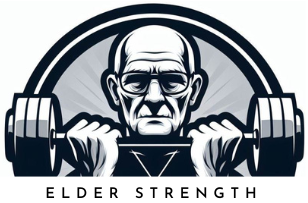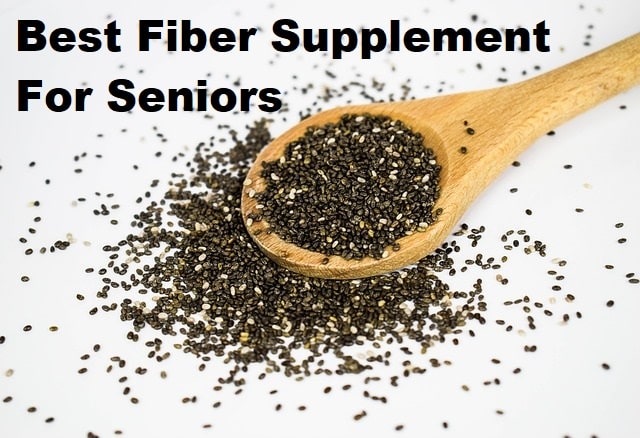Welcome friend! In this I will give you a suggestion for the best fiber supplement for seniors and if you actually need a fiber supplement.
Fiber has been touted on media and health magazines for years for its beneficial effects on health.
Fiber has been shown to help with digestive issues like constipation and diarrhea by normalizing bowel movements, lowering cholesterol levels, and controlling blood sugar levels just to name a few benefits.
But not all fiber supplements are the same. Fiber is a very broad term that includes different kinds of compounds with different properties and effects.
To make things more complicated, fiber is no magic cure for all digestive issues, it’s just a part of your diet. Everything else you eat will have an effect on your digestion as well.
In fact, too much of the wrong kind of fiber can cause issues with digestion for many people. Even constipation, which fiber supplements are typically used to relieve.
Let’s look at the types of fiber and their benefits so you can choose the best fiber supplement.
Types Of Fiber
Dietary fiber can be separated into two distinct categories – soluble and insoluble. There are also sub-categories within these of which prebiotic fiber is the most important.
Fiber is the part of food that cannot be broken down and digested by your digestive tract. Part of it ends up digested by the microbes in your colon but most of the fiber will pass through your digestion.
Insoluble fiber is the type of fiber most people think about when talking about fiber. As the name suggests, it doesn’t dissolve significantly into water or digestive fluids sot it passes through the digestive tract unchanged.
Insoluble fiber can be found in virtually all vegetables and wholegrain products. It consists mainly of cellulose. Typically fiber supplements like cereal bran will have a high amount of insoluble fiber.
Soluble fiber is very different from insoluble fiber. It dissolves in water and creates a gel that affects the metabolism of nutrients and bowel function beneficially.
Soluble fiber can be found in oats, beans, apples, carrots, berries, barley, and especially psyllium. Typically soluble and insoluble fiber will be found together, but the ratios differ a lot between fiber sources.
Soluble fiber is fermented in the colon by the gut biome to some extent, so it has prebiotic properties. Some soluble fibers, mainly found in fruits, are especially beneficial for the gut biome.
Benefits Of Different Types Of Fiber
Like we established, Insoluble fiber doesn’t dissolve in the digestive tract.
This causes it to pass the digestive tract and exit it with feces. And this is where it does its most important mission.
Insoluble fiber adds bulk to your stool and irritates the colon lining which stimulates the muscles of your digestive tract to keep digestive matter moving, aiding in regularity and colon health.
Too much insoluble fiber can be hard on your digestive tract, however. It can cause bloating, gas and constipation. Typically people get too little of any type of fiber in their diet so this is usually the only problem if you supplement it too much.
Soluble fiber on the other hand forms a gelatinous mixture with water that has some very beneficial properties in the digestive tract.
Soluble fiber adds water to stool mass and makes it softer and thus easier to pass. In my opinion, this is more beneficial than adding mass to stool if you suffer from constipation.
But the most important effects of soluble fiber are related to its ability to affect nutrient metabolism beneficially.
Soluble fiber has been shown to reduce your body ability to absorb fat, including cholesterol from diet and bile. This is especially true for psyllium husks and beta-glucan which can be found in oats and barley.
This means they can help reduce your cholesterol levels and thus lower the risk of heart disease.
Soluble fiber has also been shown to be beneficial for blood glucose levels. Even a modest increase in intake has been shown to lower blood glucose levels.
Best Fiber Supplement For Seniors
In my opinion, the best fiber supplement for seniors (or for people of any age) is psyllium, like I talked about in the article best constipation remedies for seniors.
The reason for this is that psyllium has been well researched to reduce cholesterol levels, it consists mostly of soluble fiber and it’s very cheap.
Psyllium is also excellent for bowel movements and regularity as proven by research and personal experience.
I personally think psyllium husks are a better form of a supplement than a fine powder psyllium. The powder tends to clump and if you eat it directly, it sticks to your mouth.
Psyllium husks are also relatively tasteless and odorless, so they can be added to different kinds of foods.
Just be aware that even adding a teaspoon of psyllium husks to yogurt, porridge or a smoothie can turn it more gelatinous, especially if you let it sit.
This isn’t usually a problem if you add it right before eating. It’s a good idea to add psyllium to moist food and drink something on the side.
This is because psyllium will suck up a lot of water and the soluble fiber needs to dissolve for all the benefits.
If you want to try psyllium and want to support my site, here’s an affiliate link to NOW Foods whole psyllium husks on Amazon (affiliate link). I will earn a small commission if buy through it without any cost to you. Helps to keep the site running.
Supplements Can’t Replace A Healthy Diet
Finally, I want to talk a little bit about the importance of your overall diet versus supplementing individual nutrients.
If you suffer from digestive issues or constipation, a fiber supplement like psyllium can definitely help but it is just an aid if your diet is the reason for the issues.
Of course, the first thing is to rule out any medical reasons for digestive issues so the following assumes you are healthy.
With fiber, it’s important to get both soluble and insoluble fiber for your digestion to work smoothly. But more important than the actual fiber is what comes with that fiber in the diet.
Virtually all sources of fiber are plant-based, nutrient-rich, and healthy foods. Vegetables, fruits, whole grains, mushrooms,
What lacks fiber are processed foods and animal-based foods. White flour, sugar, processed oils, meat, and dairy contain virtually no fiber.
This means that in nature fiber comes with foods that are full of nutrients and that we now know from research are healthier options for long-term health.
So instead of simply supplementing with fiber, it might be a good idea to look at your diet as a whole. Does it have a lot of fresh sources of fiber, i.e. veggies and fruits, or does it include a lot of processed food and animal products?
There’s no need to give up all processed foods or treat, it’s all about balance. But adding more vegetables into your diet is almost always a good idea. Plant-based and vegan diets are a great option for seniors when planned properly.
If you have chronic digestive issues, it might be wise to plan your diet and fiber intake with a physician or a dietician as some fibers are categorized as FODMAPs that can irritate a sensitive gut.
Conclusion
I hope you found this post about the best fiber supplement for seniors useful. If you have any questions you can leave them in the comments section below.
In conclusion, fiber is a very beneficial dietary component. I personally think people will find supplementing with soluble fiber more beneficial and that’s why I recommend psyllium as the best fiber supplement.
Psyllium is cheap and easy to use and it consists mostly of soluble fiber. But it’s important to make sure you get a balanced ratio of different kinds of fibers from your diet which means lots of plant-based food.
Thanks for reading and see you next time!

